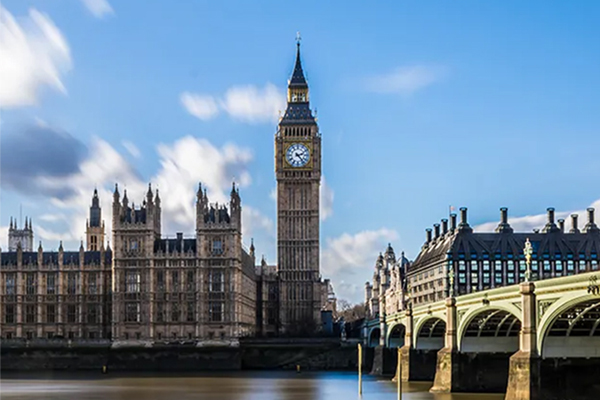Why Choose Lincoln
Strong links with parliament
Hear from subject experts, including Visiting Professor Paul Evans
Opportunities to apply learning through placement
Choose from a range of optional modules

This programme is designed to understand more about what constitutes effective leadership, how it is evaluated and applied. Designed around a series of modules facilitated by academic and practitioner teams, the focus is on evaluating evidence from research and practice in live settings, case studies and consultancy problems. Students will bring their own organisational experience to the course, if appropriate, and will also benefit from masterclasses with relevant speakers.
Using a range of policy and delivery challenges that cut across disciplinary, geographic, organisational and sectoral boundaries, we critically reflect on how insights into theory and practice can generate and sustain individual development, organisational improvement and enhanced public outcomes. This programme champions the creation of public value and an ethical engagement with the multiple interests involved in public, private and third sector collaborations.
The programme draws on a range of subject specialisms within the School of Social and Political Sciences and connects students with tutors who have research expertise in the area and can support students on their personal research and career paths.
Strong links with parliament
Hear from subject experts, including Visiting Professor Paul Evans
Opportunities to apply learning through placement
Choose from a range of optional modules

Students learning will be based around two hour, small group workshop sessions, with an interactive and participatory approach.
There will be a blend of the scholarly and the practice-based, with students engaging with up-to-date academic literature and participating in practices suited to political leadership, such as public-speaking, writing policy briefs, and decision-making exercises.
A further innovative aspect of the programme is that students will engage with practitioners in a dedicated Political Leadership in Practice module which will feature visiting speakers from different branches of political practice. Using the experience of senior academics, who have experience in the public leadership realm, key actors will contribute knowledge and work based learning to the programme.
The School of Social and Political Science is home to the Lincoln Parliamentary Research Centre, a group which focuses on establishing Lincoln as a recognised centre for excellence for research and teaching in legislative studies. The School has also been at the heart of developing policy impact via the Lincoln Policy Hub and also has good links with the local authority and local voluntary sector organisations.
Explore Research Groups
† Some courses may offer optional modules. The availability of optional modules may vary from year to year and will be subject to minimum student numbers being achieved. This means that the availability of specific optional modules cannot be guaranteed. Optional module selection may also be affected by staff availability.
We want you to have all the information you need to make an informed decision on where and what you want to study. In addition to the information provided on this course page, our What You Need to Know page offers explanations on key topics including programme validation/revalidation, additional costs, contact hours, and our return to face-to-face teaching.
Students have the option to undertake a project-based module in the third term which will require students to complete a reflective project in an appropriate professional setting. Alternatively, students can choose to complete a research dissertation.
The programme is designed to expose students to a range of different forms of assessment and to develop a range of academic, professional, and work-relevant skills such as public speaking.
Students will have the chance to develop written communication skills through essays, report writing, and independent study, all of which are designed to expand students' skills in professional and academic writing. Oral communication skills are also assessed, for example, through a video podcast on one of the optional modules, enabling students to improve their public presentation and public speaking abilities.
The development of high-level research skills is a central feature of the programme and students will be expected to develop these through the core research methods modules and apply such methods in the final project. Further research skills are also embedded in assessments throughout other core and optional modules.
Critical, analytical, and reflexive thinking are central to all assessments. IT skills are embedded in many modules and include word processing, digital data management and presentation, statistical data handling, the use of electronic search engines, and other resources.
Assessment Feedback
The University of Lincoln's policy on assessment feedback aims to ensure that academics will return in-course assessments to students promptly usually within 15 working days of the submission date.
Postgraduate Application Support
Applying for a postgraduate programme at Lincoln is easy. Find out more about the application process and what you'll need to complete on our How to Apply page. Here, you'll also be able to find out more about the entry requirements we accept and how to contact us for dedicated support during the process.
How to Apply
First or second class honours degree in a relevant subject.
Candidates holding other qualifications or substantial relevant work experience may be considered on an individual basis.
Overseas students will be required to demonstrate English language proficiency equivalent to University of Lincoln IELTS entry requirements (6.0 overall, with a minimum of 5.5 in each element).
Students who do not meet the above IELTS requirements may be able to/required to take part in one of the University's pre-sessional English and Academic Study Skills courses. These specialist courses are designed to help students meet the English language requirements for their intended programme of study.
You will need to have funding in place for your studies before you arrive at the University. Our fees vary depending on the course, mode of study, and whether you are a UK or international student. You can view the breakdown of fees for this programme below.
The University offers a range of merit-based, subject-specific, and country-focused scholarships for UK and international students. To help support students from outside of the UK, we offer a number of international scholarships which range from £1,000 up to the value of 50 per cent of tuition fees. For full details and information about eligibility, visit our scholarships and bursaries pages.
Postgraduate Funding Options
Find out more about the optional available to support your postgraduate study, from Master's Loans to scholarship opportunities. You can also find out more about how to pay your fees and access support from our helpful advisors.
Explore Funding Options
Postgraduate study is an investment in yourself and your future. It can help you to further or completely change your career, develop your knowledge, enhance your salary, or even prepare you to start your own business.
This programme is designed to develop specialist subject knowledge relevant to careers in a wide range of areas, such as the voluntary and public sectors. Students have the opportunity to develop a set of transferable skills relevant to roles in social research and public leadership in addition to skills vital for further academic study at doctoral level. The programme is also designed to enhance your current skills, if you are in a public leadership position or are seeking to develop your understanding of public leadership in a professional setting.
For more information about this course, please contact the Programme Leader.
Dr Mark Bennister
To get a real feel for what it is like to study at the University of Lincoln, we hold a number of dedicated postgraduate events and activities throughout the year for you to take part in.
Upcoming Postgraduate Events